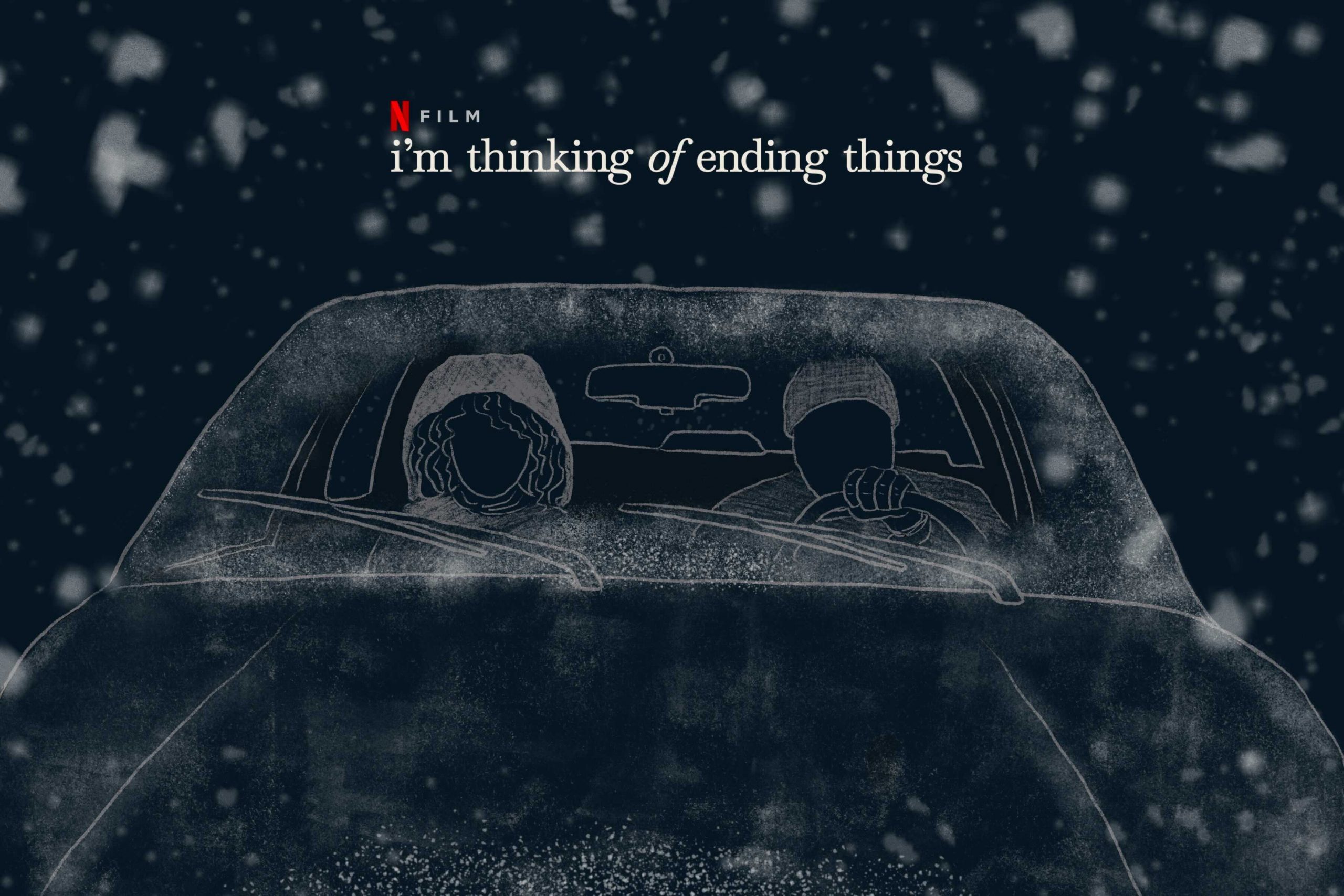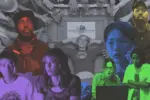The phrase “I’m thinking of ending things” has many meanings. It can refer to the end of a relationship or a life. While one use is dark, the other is undeniably darker.
Like the use of this phrase, Charlie Kaufman’s psychological drama, “I’m Thinking of Ending Things,” is up to the audience’s interpretation.
Like all art, the viewer will get what they want or need from the piece rather than what the creator intended.
Based on Ian Reid’s 2016 novel of the same name, Netflix’s “I’m Thinking of Ending Things” became available in early September, leaving audiences staring at their ceiling in contemplation after the credits rolled.
The film adaptation is written, directed and produced by Kaufman, an intricate and compassionate filmmaker known for existential films like 1999’s “Being John Malkovich” and 2004’s “Eternal Sunshine of the Spotless Mind.”
Like most of Kaufman’s previous work, “I’m Thinking of Ending Things” does not tell the viewer what they should think or feel about the movie. Instead, it gives them the pieces of a puzzle, a lost key and unidentified crumbs to piece together.
A young woman (Jessie Buckley) travels with her boyfriend to meet his parents for the first time. Upon arriving at their secluded farmhouse, she starts to question everything she knew about her boyfriend, Jake (Jesse Plemons), and herself.
Her uncertainty escalates as the couple is trapped by a snowstorm and forced to stay with Jake’s mother (Toni Collette) and father (David Thewlis) longer than they planned.
The cast gives an outstanding performance. Every jerky nod of the head, nearly inaudible moan and barely-there flinch adds to the effect the film has on its audience.
Jesse Plemons gives an unforgettable performance as Jake. Even as I remembered one of his most recent Emmy-nominated roles as a space captain in the “USS Callister” of “Black Mirror,” I was entranced by the mystery surrounding this character.
Throughout the film, the young woman sporadically narrates and repeats “I’m thinking of ending things” to herself over and over again. Adding tension to the dinner table dynamic, she tries to understand her reasoning as the events of the film unfold in front of her.
Although “I’m Thinking of Ending Things” seems like a speculative and self-indulgent letter to a past lover or a trippy psychological thriller in the trailer, the film’s perspective shifts in ways otherwise unheard of.
The sound design sets the tone in the movie. There are the quick splashes as Jake’s childhood dog shakes the water from its fur, the rubber scraping noises of windshield wipers during a snowstorm and, of course, Toni Collete’s breathless and squeaking laughter reminiscent of her terrifying role in Ari Aster’s “Hereditary.”
All the patterns of sound and speech in the film come together to create a hypnotizing and cohesive backdrop for the anxiety-inducing story. The sounds create the kind of shock that will make the hairs on your arms stand at attention.
Jay Wadley’s score is intoxicating, fantastical and nostalgic without being too familiar. The soundtrack is melancholy and haunting without veering too far into the realm of the music of a traditional horror film.
Mixed with ’50s advertising jingles, traditional musical theater and full orchestral ballet suites, the music is fragmented but still cohesive.
However, my favorite part of the soundtrack was how it made me feel — alone. Wadley was extremely successful in forcing the audience’s ears into isolation. The emotion, or perhaps absence of emotion, in the score cyclically connects to themes in the film.
The imagery and landscape in “I’m Thinking of Ending Things” is like a Bob Ross painting if Bob Ross lost his positive outlook on life and started dressing in all black. Almost completely white, the flurries of snow surround the characters every time they step outside.
Indoors, the camera focuses on all the little details that turn a quaint farmhouse into a decorated prison. The cinematographer, Lukasz Zal, forces the audience to focus on what they are seeing and what they are not seeing through tight shots.
In a movie that largely takes place with the two main characters in a moving car, Zal has many shots from outside the car or outside the reach of a natural point of view. He tends to obscure the main characters, blurring details that would be in focus in any other film. The cinematography puts the audience in a dreamlike state without using cheap camera tricks.
After almost six months of pandemic-induced lockdown and social distancing, “I’m Thinking of Ending Things” has either the perfect or worst timing. Life feels like it has left us behind; Kaufman’s existentialist take could be what pulls us back to the present, or leaves us dwelling in the past.
Time doesn’t exist in “I’m Thinking of Ending Things,” at least not in the sense that we understand it. The movie does not adhere to a strict timeline, just as it feels like our time today is a train that has fallen off its tracks.
“I’m Thinking of Ending Things” is best watched alone in a reflective and inquisitive state. The mystery of the film is something the audience should attempt to solve themselves, without help from another person’s perspective or explanation in a video.
I would suggest not watching “I’m Thinking of Ending Things” if you are struggling with depression or any other mental illnesses at the moment. The theme of suicide is covered in the film.
At some of the lower points in my life, a film like “I’m Thinking of Ending Things” might have struck a chord. The film could have had a positive impact on me, or it could have pushed me in the wrong direction.
You should evaluate yourself before watching “I’m Thinking of Ending Things.” How are you feeling? Do you think you would benefit or be hurt from watching a depressing film? How do you think it would affect you?
“I’m Thinking of Ending Things” is a bleak look at memory and regret. It is ice cream during a blizzard, a long road trip with someone you no longer love. It is the annoying tune that plays in your head while you try to sleep, the piece of popcorn stuck between your teeth. It is a catatonic form of chaos, a dreary existentialist night terror. It is nothing and everything all at once.
Each individual that watches the movie will have a different interpretation. They will watch the credits roll and have a different reaction. The story will impact those who watch it in different ways, if at all.
Even without a specific meaning, the sights and sounds of “I’m Thinking of Ending Things” will remain and linger for hours after the screen goes black.















